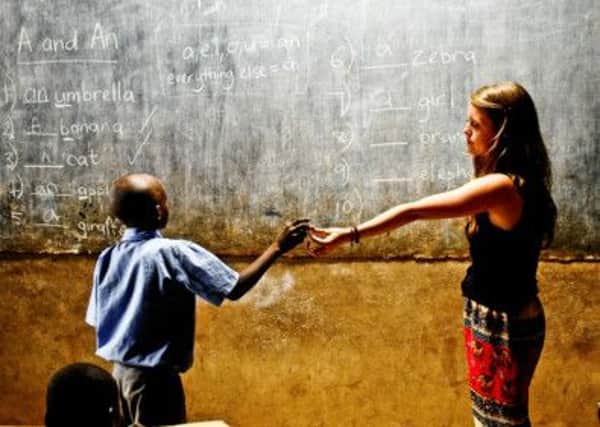Mind the gap year


With A-Level results finally secured, thousands of school leavers are now left contemplating their next step. For many, this will be heading straight to university; for others it will be bypassing tuition fees and going into work, and for the rest, it will be heading around the globe on a gap year.
Over the last few decades, the ‘gap year’ may have become synonymous with largesse and time-wasting, but things are changing. Today’s students view a year off before university as a chance to boost their CVs for potential employers.
Advertisement
Hide AdAdvertisement
Hide AdHollie Brooks, marketing manager for BUNAC, a specialist operator in work and volunteer programmes abroad, says: “Young adults want something definite to show for time spent between school and university – an internship, volunteering to work with children, animals or on conservation projects, rather than just travelling.”
Year Out Group, the association which represents leading gap year travel organizations, also agrees with the shifting focus on the modern gap year. Richard North, the chief executive, says: “Out of 720,000 18-year olds in any one year, around 180,000 will undertake serious gap year travels between the ages of 18 and 24, and 60-70,000 will do good work like teaching or volunteering to join projects in Thailand, India, and Africa.”
He adds Australia and New Zealand have great appeal to young people too, because they are seen as safe – there is a catch, though. “These are no longer cheap places to go and live,” North points out. “And many people struggle to find low-paid work in Australia.” Planning a gap year must be done well in advance to save up any fees, and also to organize ‘admin’. “This is not like booking a last minute holiday,” North says. “If you are volunteering to do useful work, you must get a visa, possibly find a job, and all this can easily take six or seven weeks.”
Thankfully for students – and worried parents – who feel overwhelmed by all this, there are many companies set up to help. Global Vision International (GVI), for example, is a gap-year organisation with 100 projects, many short-term ones, in 15 countries. Stuart MacPherson, GVI’s marketing director, says: “Our average volunteer joins a project for 4-6 weeks, with prices averaging around £1,500 plus the cost of the flights.” Before setting off anywhere though, remember to check the Foreign and Commonwealth Office (FCO), to find out about any potential dangers in the area you wish to work.
Year Out Group (01380 816696 and www.yearoutgroup.org); GVI (01727 250250 and [email protected]); BUNAC (0207 870 9570 and www.bunac.org.uk).